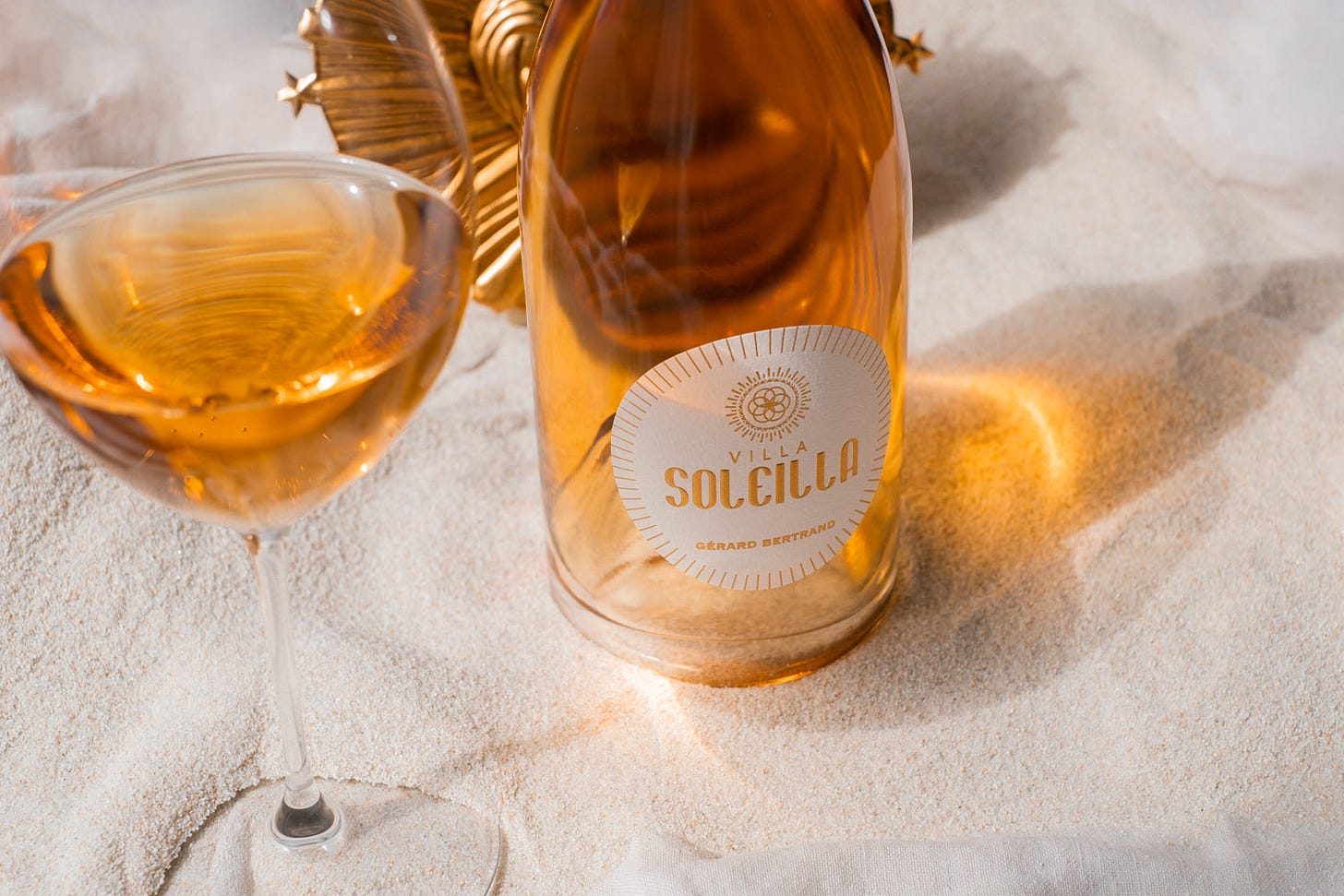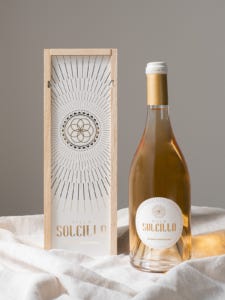Gérard Bertrand releases Villa Soleilla orange wine with 149 Euro price-tag
One of the Languedoc's major winery groups has just released two orange wines, one with a price of €149 per bottle. I spoke to Betrand about the inspiration behind them.
Orange wine lovers may be surprised to learn that the Languedoc-based Gérard Bertrand winery group released two orange wines onto the market just a few months ago, in October 2021. More surprising is that one of them, Villa Soleilla, comes with a retail price of €149. This puts it in the running for the most expensive current vintage of a skin fermented white (AKA orange wine). Tenute Venissa's Bianco, Gabrio Bini's Heritage and Gravner's Riserva bottlings are contenders, but only their back vintages top this price.
"It's important to lead the category", Bertrand told me in a zoom interview today, justifying the price point. "Villa Soleilla is an iconic wine, and it celebrates our biodynamic vineyards and the iconic estate of L'Hospitalet" [from which the grapes are sourced].
Bertrand has the chops when it comes to coexistence in natural and orange wine categories. His entire vineyard holdings of 850 hectares are Demeter certified - a process that he began in 2002, experimenting on a small two hectare plot of Merlot vines that were as he puts it "close to their end". He and his team were amazed at the effects of working biodynamically, and saw great results not just in terms of vine and soil health but also in better pH and acidity values when the grapes were harvested.
The inspiration for the change in farming came from his long-term usage of homeopathic remedies, something he says has had a profound and positive effect on his health. "I read Rudolf Steiner's work in 2002 and it was a revelation" he adds - "I realised biodynamic was a system like homeopathy but for plants". And why orange wine? Bertrand says "I wanted to pay a tribute to the Georgian people, who have been making wine in this way for 8,000 years". He recalls tasting good examples of orange wines from Italy and France, and specifically credits Matassa and Chateau Gauby, although he adds that he wanted to modernise and fine-tune the winemaking methods.
Bertrand introduced a range of 'natural' wines to the group's range way back in 2011. The Naturae varietals are vinified without the addition of sulphites. However the newly released orange wines sit in a different paradigm, as both are made with a fair bit of intervention in the cellar.
They're also both first vintages, from 2020. Orange Gold is the more mainstream, with considerably more down-to-earth pricing (€13.50 a bottle). It's a blend of local and not-so-local varieties: Chardonnay, Grenache Blanc, Viognier, Marsanne, Mauzac, Muscat. I would describe it as a fruit bomb, with almost overpowering ripe apricot and peach flavours. It's evident that the use of the skins has turbocharged the wine's concentration and intensity. However, made with selected yeasts, filtered and fined, it is not likely to appeal to natural wine fans.
Villa Soleilla, named after the luxury resort situated next to Château l'Hospitalet, is the big boy. Everything about the package screams money and exclusivity. The bottle ships in a glass fronted wooden box and is wrapped in fancy tissue paper. The wine was partly matured in clay and glass amphoras and egg-shaped tanks which, according to Bertrand, helps create not just the right structural balance but also develops the admittedly gorgeous deep orange colour. However, on tasting the wine I experienced a swathe of new oak flavours which arguably need a couple of years to integrate. Bertrand agrees that the wine will show best in a year or two, and reckons that it could age for a decade or more.
Made with a blend of regional varieties - Roussanne, Viognier, Vermentino - Villa Soleilla feels quite shy on the nose right now, but has impressive body and firm structure and the feeling that it could develop complexity and interest given time. As with Orange Gold, it's not going to speak to lovers of Radikon or Georgian qvevri wines. With 14% stated alcohol and the marked oak influence, the wine feels more orientated to fans of classic white Hermitage or other full bodied, oak aged white blends.
Whilst Villa Soleilla was vinifed with only wild yeasts, it was temperature controlled, filtered and fined. This marks it out as a very different beast to either the Naturae range or other well known orange wines from Languedoc-Roussillon growers such as Matassa, Gauby or Viret.
Knowing Bertrand's keen eye for marketing, it is surely no accident that these wines speak more to the concept and customer base of premium rosé, than to typical orange wine connoisseurs. The focus on the wines' colour, and the style of the labels and packaging make this clear. Villa Soleilla is sold on allocation (although it also appears to be available for online purchase), and Bertrand says that it has been received enthusiastically by the group's distributors around the world.
What, then, does the term orange wine ultimately mean to Bertrand? "It’s a new colour in the wine industry. It's the inspiration for a new kind of wine grower. It's a source of creativity". Will he continue to produce both Orange Gold and Villa Soleilla in the years to come? "Absolutely. This is just the beginning".
Orange Gold and Villa Soleilla were provided for review by the winery.



